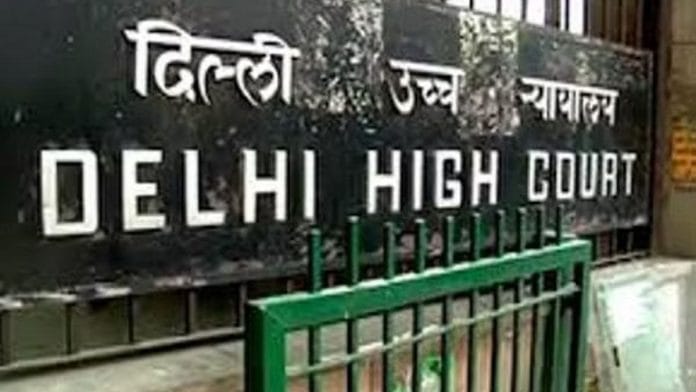New Delhi: Government-aided minority education institutions do not require prior permission from the Department of Education (DoE) to appoint their principal, teacher, or other staff to fill vacancies, the Delhi High Court has ruled.
A single-judge bench of Justice C. Hari Shankar Tuesday observed that aid granted by the state — irrespective of how much it is — does not alter the character of a minority education institution.
Minority education institutions have the absolute right to appoint their personnel, the HC said, emphasising their autonomy to establish and administer their schools.
The HC, however, added that conditions could be imposed on minority education institutions to ensure proper utilisation of government aid, clarifying that such powers are limited to prescribing qualifications and experience for principals and teachers.
The HC judgment came on a petition filed by the Delhi Tamil Education Association (DTEA), founded in 1923, to promote the Tamil language and Tamil culture. In Delhi, the DTEA is currently running seven schools, which are linguistic minority institutions with 6,879 students in total.
The association filed the petition due to a deficit in principals and teachers in its schools while the DoE continued to be unresponsive to its requests to give clearance to fill the said posts.
The DTEA requested the court to declare that it does not require DoE clearance to fill the vacant principal and teacher posts or direct the education department to provide the necessary clearance.
In its petition, the DTEA stated that it would be forced to shut down if the DoE continued to be unresponsive.
The HC noted that “quiescence” is not an option and that these vacant posts cannot remain unfilled “ad infinitum”, adding that if the DoE isn’t acting, the court must.
The DTEA argued that according to the Delhi School Education Act, 1973, and the Delhi School Education Rules, 1973, even in the cases of aided minority schools, the DoE representatives who are part of the selection committee for appointment of principal or teacher would act as observers only. They do not have the power to vote or control such an appointment itself, keeping the autonomy of minority schools paramount, the petition said, citing the rules.
Opposing the DTEA plea in court, the DoE submitted that the recruitment process followed by the association was not transparent, and it has been receiving complaints about “fixed” selection, showing “collusion between the selection committee of the aided schools and the department”. The department further stated that some candidates did not get called for interviews despite being on the merit list.
In response, the petitioners argued that a minority educational institution exists to promote and propagate the culture and tradition of a particular minority community, so in selecting the candidates, it would bear in mind whether the person upholds the “ethos and principles” of that community.
Satisfied with the DTEA explanation, the court said there is “no embargo” on the association in filling up the vacant posts of principal or teacher, and it does not require any prior approval.
However, the court stated that the selection committee making the appointments would require the participation of DoE nominees, according to the DSE rules. Hence, the DoE can nominate its members to be part of the selection committee.
Holding that the DTEA has an absolute right to appoint the persons it chooses to employ, the HC said the grant of aid by the state makes no substantial difference to the legal position of the DTEA, with the rules only permitting the DoE to regulate the proper utilisation of the state funds.
Uttkarsh Mishra is an intern with ThePrint.
(Edited by Madhurita Goswami)
Also read: A widow gets no share in deceased mother-in-law’s property — Delhi HC highlights ‘anomaly’ in law






